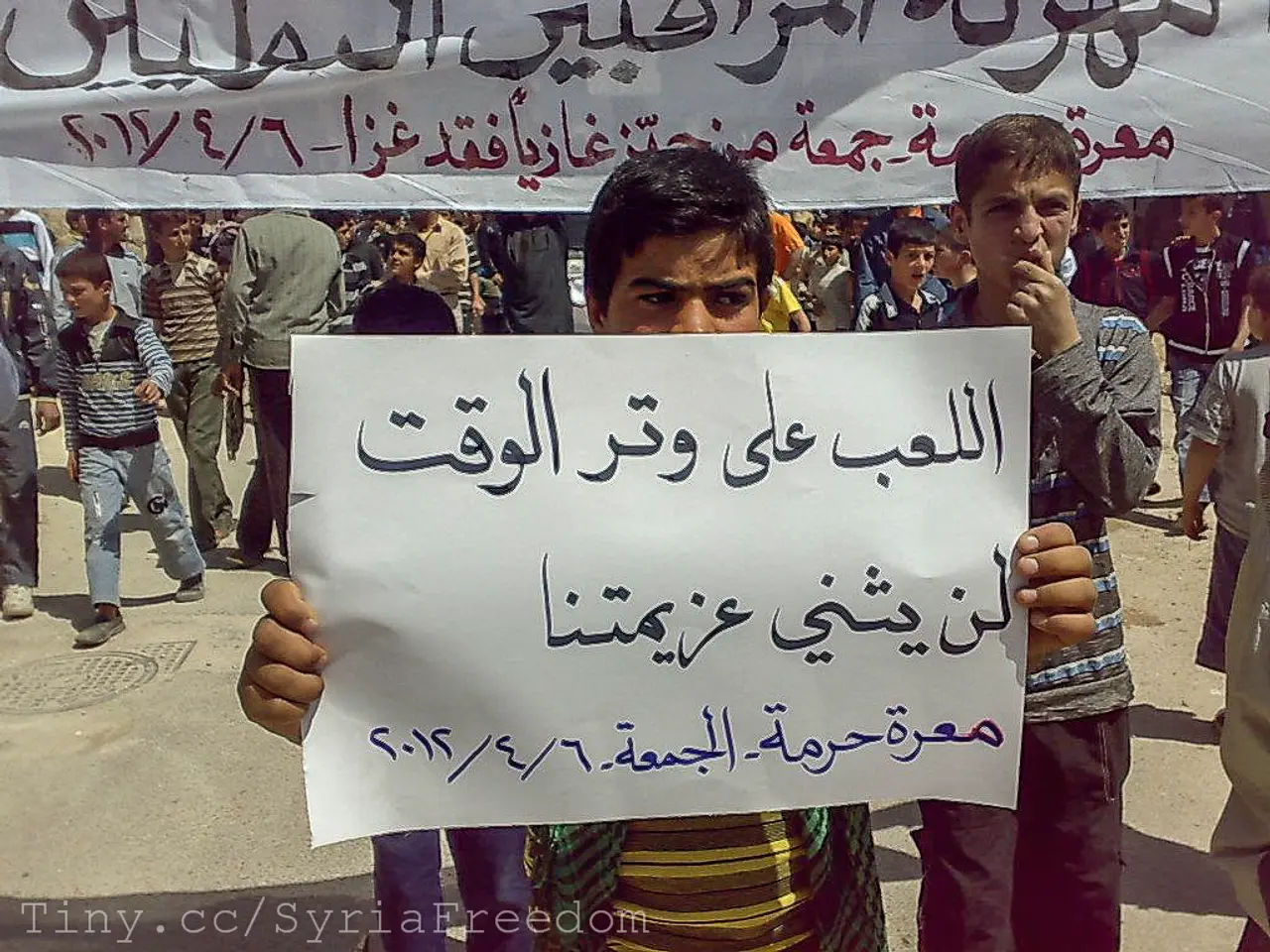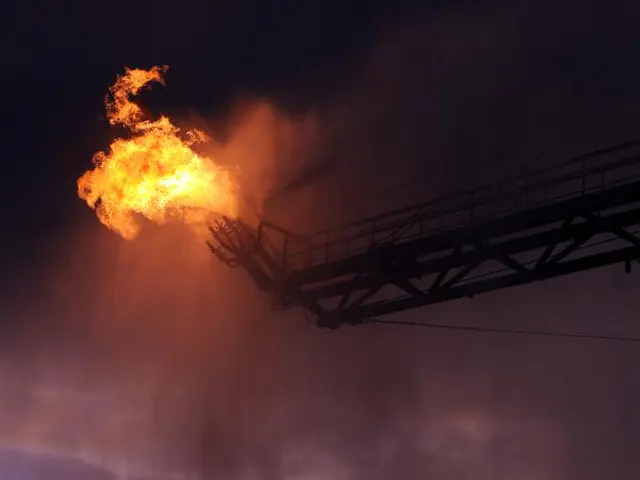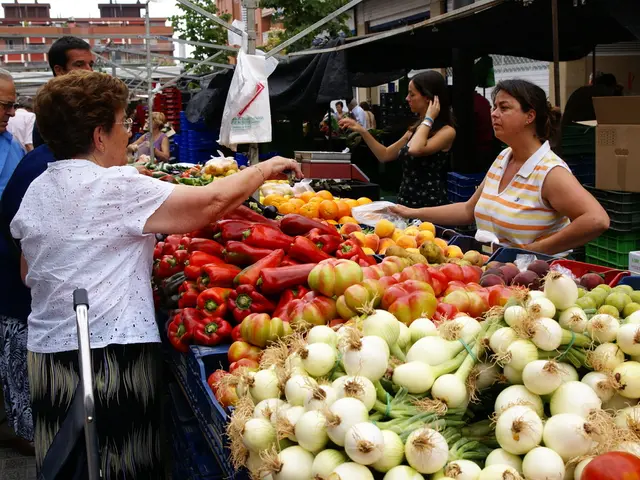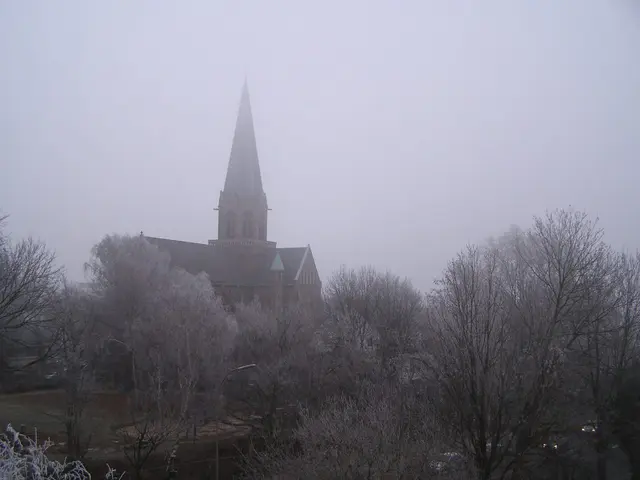Protests by Druze in Berlin Over Violence in Syria
In the heart of Kreuzberg district, the Heilig-Kreuz-Kirche echoed with the melodies of a solidarity concert, organised by the humanitarian organisation Sanad, in support of the embattled Druze minority in the Syrian province of Sweida. The event was a response to the ongoing ethnic and sectarian violence that has plagued the region since July 2025.
Tareq Alaows, the refugee policy spokesman of Pro Asyl, expressed his concern over the silence of the international community regarding the massacres in Sweida. He called for a United Nations investigation into the alleged atrocities, including the crimes of the Islamist HTS militia in Idlib and the Assad regime.
The concert was marked by the waving of Druze flags and banners demanding a humanitarian corridor to Jordan and an end to the terrorism. Leen Alaouch, a representative of Sanad, highlighted the organisation's efforts to provide up to 1000 portions of food daily, cooked on site, for the people in Sweida, in addition to covering hospital and medication bills.
The protest, held in front of the Red City Hall in Berlin, saw activists reading out a statement demanding recognition of the massacres against Druze in Sweida as genocide, an independent international investigation commission, humanitarian visas for the persecuted, and non-recognition of the regime of Syrian transitional president Ahmed al-Sharaa.
Leen emphasised the resilience of the Berlin Druze, stating that they cannot just sit at home and cry, and that the people in Sweida need their positive energy to stay strong. Omar Alkadamani, another organiser of the protest and moderator of the solidarity concert, shared similar sentiments, stating that the aim was to show a counterbalance to Islamic terrorism with their culture.
Sanad, founded in 2017, has been intensifying efforts to help people in Sweida since the murders of July 13. The organisation has been operating a network of trust to organise help in the region, and Leen stressed the importance of obtaining information from people who live in Sweida and raising one's voice, despite threats.
Marten Brehmer, a political figure, demanded no deportations to Syria and Afghanistan, reflecting the global concern for the plight of the Druze minority. Hundreds of people attended the protest, many traveling from other parts of the country, demonstrating the widespread solidarity for the Druze cause.
The solidarity concert aims not only to be loud on the streets but also to serve as a testament to the power of culture in countering extremism. As the conflict in Sweida continues, the international community, including Germany, will likely continue to provide humanitarian aid and asylum support for Syrian minorities, including the Druze.
- Tareq Alaows, expressing his concern over the war-and-conflicts in Sweida, urged the international community, particularly the United Nations, to investigate the alleged atrocities committed by the Islamist HTS militia in Idlib and the Assad regime, and recognize the massacres against the Druze minority as genocide.
- Omar Alkadamani, another organizer of the protest and moderator of the solidarity concert, emphasized the necessity of countering the extremism in Sweida through culture, as part of the general-news and politics discourse about the ethnoreligious conflict in the region.








